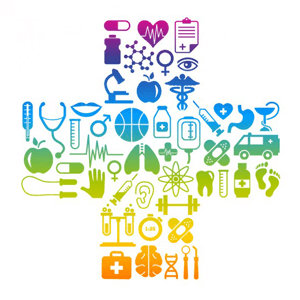Delivering healthcare for the millennial generation
As with any service-based industry, the healthcare field isn’t exempt to the impact of the massive millennial generation coming of age – the era of millennial healthcare is upon us and it is vital that service providers adjust to the expectations of this demography. A key element of these expectations is that healthcare service providers re-envision IT infrastructure with a focus on cloud-based technology and software defined networking (SDN).
Below are 3 key insights into the millennial healthcare vision and the digital transformation the industry must undergo in order to best meet the expectations of millennials while remaining compliant with industry regulations.
1. Get onboard with telehealth initiatives
In a consolidated report, the Becker Hospital Review states that 74% of millennials are interested in telehealth. Additionally, 71% of respondents to a separate study state they’d like their providers to utilize mobile applications for appointment scheduling, to relay health data, and to manage preventive care. The millennial healthcare vision is one that embraces rapidly evolving technology and leverages digital transformation initiatives to more effectively and efficiently provide the services patients demand in more accessible formats.
2. Embrace the service enhancements that result from digital transformation initiatives
A driving factor in millennial healthcare service preferences is a service provider’s ability to provide quick and efficient care. The Becker Hospital Review states that 34% of millennials prefer retail clinics, and 25% of millennials are more inclined to visit acute care clinics than a primary care physician. Through reconfiguration of IT systems and the adoption of electronic health records (EHR), it’s possible for traditional providers to leverage data to increase efficiency and enhance patient care and thus offer the same affordable and efficient care as retail clinics while maintaining the personal patient connection.
3. Digital transformation of healthcare systems will help control costs

In the era of millennial healthcare, many patients will insist on discussing billing prior to services being provided. Millennials are more likely to either request discounts on services rendered or request alternative more cost-friendly care options.
Millennials are also more likely to shop for the most affordable care plans and to price out providers online and balance cost against feedback of care providers found online.
Through increased efficiency of systems and embracing digital transformation initiatives, it is possible for traditional service providers to streamline billing, control costs, and leverage patient data to increase repeat visits and even influence patients to schedule preventative visits and thus increase retention and maximize profitability.
Making millennial healthcare about the connection
While the data points to a generation that is more focused on the cost and efficiency of services than it is about making a connection to their primary care physician, it’s important to remember that the millennial generation places more importance upon experience and value of service than they do on other elements. Through leveraging digital transformation initiatives and improving efficiency across the operation, it is possible for a healthcare provider to provide to millennials both value and affordability and in doing so, maximize their experience, and build and retain business over time.


